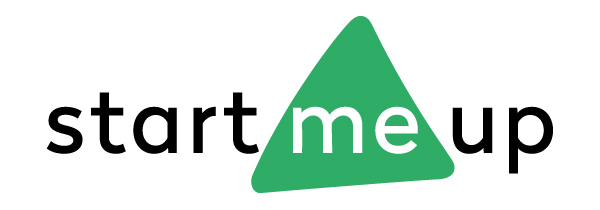If you’re interested in pursuing a portfolio career, you’re almost certainly going to have to learn about freelancing.
Freelancers often work from anywhere and work flexibly on different projects, selling work or services by the hour, day, job, etc., rather than working on a regular salary basis for one employee. It can be very lucrative but it requires a range of skills that aren’t taught at university.
First off, you have to devise a service to offer, price it and market it.
As well as setting realistic prices that provide you with enough money to live on, you have to find people who will pay for the service you offer. You then have to manage the relationship with your client and stay on top of any legalities or tax affairs arising from your work.
In sum, it can offer more freedom than an office job but can be hard to navigate for those just starting out.
Having said all this, pretty much all of the information you need is available online.
What follows is a brief introduction to getting a basic freelance operation off the ground.
What shall I offer?
This is the multimilliondollar question. Not all freelance jobs are created equal and some skills will command higher premiums when they are in-demand.
Search for ‘freelance jobs’ and you’ll see a wide range, from proofreader and editor, to growth hacker or programmer. Some require more specialist areas of knowledge than others. If you find an area that piques your interest, look at the requirements and see how typical freelancers of that ilk present themselves.
You can turn your hand to an in-demand skill like programming, as previous Start Me Up program participants have done. This can be very worthwhile financially, but it can take time before your skills are good enough to freelance professionally.
So it can be a good idea to experiment with other services that you can develop over time. Think about it.
If you’re a student, you already have things that other people would pay you for. For example:
- You have access to a student body. Thousands of companies are trying to reach you and your peers. You could offer your marketing services to companies looking to reach a student audience, for example.
- You have access to academic journals. Some universities pay upwards of $2 million a year for subscriptions to academic journals. You may take your log in details for granted, but there’s a good chance someone like me would pay you to undertake research on their behalf. You could consider touting your services to authors who are researching their book, for example.
- If you’re at university, you could tutor someone else in how to get into university, for example. Or perhaps someone would pay to get their hands on a set of your old notes.
- If you do an essay-based subject, you can probably write. And believe it or not, some people will be willing to pay you for what you write.
These are just three examples, but search on freelancing sites (Like Upwork, Fiverr and Freelancer.com) and you’ll find thousands of different services that people are offering and they don’t have to be student-focused.
You don’t need to get corporate experience to be able to offer something valuable. You already have the potential to offer something people will pay for.
If you can use a computer and you’re enterprising, you can do anything from helping to write the content for a website to setting up accounting software.
How can I prove I’m good at the service that I’m offering?
When you’re setting up as a freelancer, one of the first things you need to do is build a portfolio of your work. It’s one thing to say what you do, it’s another to be able to show how your work helped your client.
You can make your website sound impressive but the best way to demonstrate your effectiveness is to get testimonials from clients.
These could be on your site, or they could be on a third party freelancing site (like Upwork, Fiverr and Freelancer.com). Freelancing sites reward freelancers with great reviews. Many freelancers focus on getting testimonials first and raise their prices as they go on.
The better the reviews, the more leads they get and the better the chances of raising their prices.
Where else can I find clients?
Your first client could be anyone. It could be a friend, or a friend of the family. It could be someone you’ve never met before.
When it comes to freelancing, your potential clients are everywhere. A good place to start can be with test clients. You could put out a request on a relevant Facebook group or amongst your own network looking for guinea pigs.
As mentioned above, you could also set up a profile on established freelancing sites like Upwork, Freelancer.com or Fiverr.com
What do I charge?
Pricing your services as a freelancer is notoriously difficult at first.
On some freelancing sites, it can feel like a race to the bottom price-wise.
Most freelancers charge by the hour. This is tricky for several reasons. If you’re quick, should you be penalized for working more swiftly than other freelancers? Also, sometimes projects take longer than the estimate. The freelancer has a responsibility to make sure they estimate the length of time it takes accurately at the beginning. As charging far more than they budgeted at the end of the project can make you unpopular with some clients.
A great way to get inspired about ways to package up your service offering is to look at the way other people do it.
Do some market research. Try to get a sense of how much other people are charging. You can also ask your client what their budget is for the project and quote them on a per project basis.
Some clients may try to set the price in advance. The thing to remember is that the pay may be low at first while you’re testing your service.
How can I make more money?
You can always put your prices up. You can also bundle up your services. You can move into areas where there’s an uptick in freelance hires.
Do I need a website?
You don’t need a website to advertise your services on a third-party site. But you may want to have your own site as you may want to attract clients or customers from other avenues like Google Search or Facebook marketing.
Having your own site may give you the chance to charge more for your services and provide more information about what you do. You can make simple websites without any code using Squarespace, WordPress or Wix.
What about the legalities?
The rules about tax and employment vary on a country by country basis. I didn’t need expensive legal advice to set up my own company, I set it up myself for less than $50, but every different jurisdiction is different. Your national tax authority should be able to help guide you.
Tips
- Set boundaries. When you are an employee, you have a salary that is paid to you at regular periods. Your salary will occasionally go up and rarely down. As a freelancer, things are different.
- Identify a product or service that you want to offer or maybe a specific group of customers you want to help.
- Scan job sites and look to see what kinds of freelance positions are available. Are there any patterns emerging? Are there any jobs that keep coming up?

